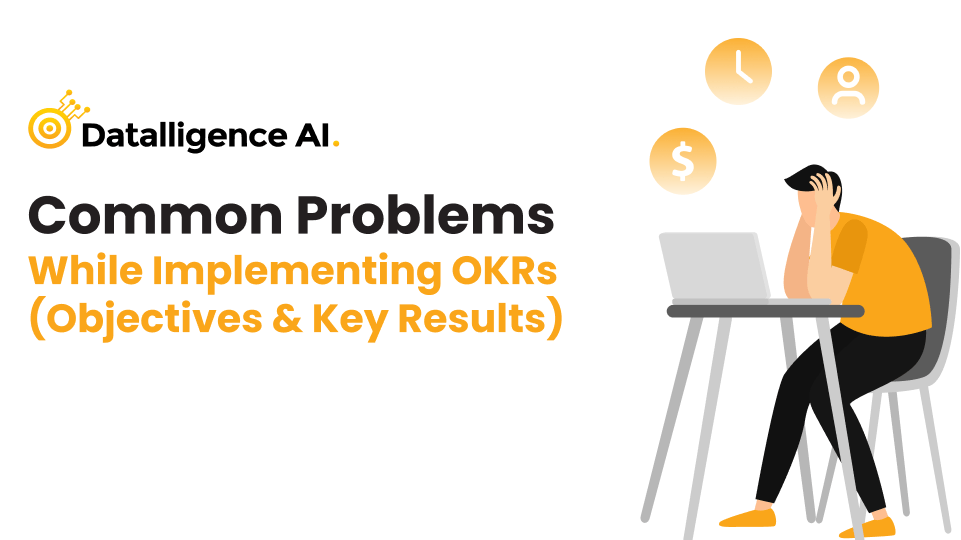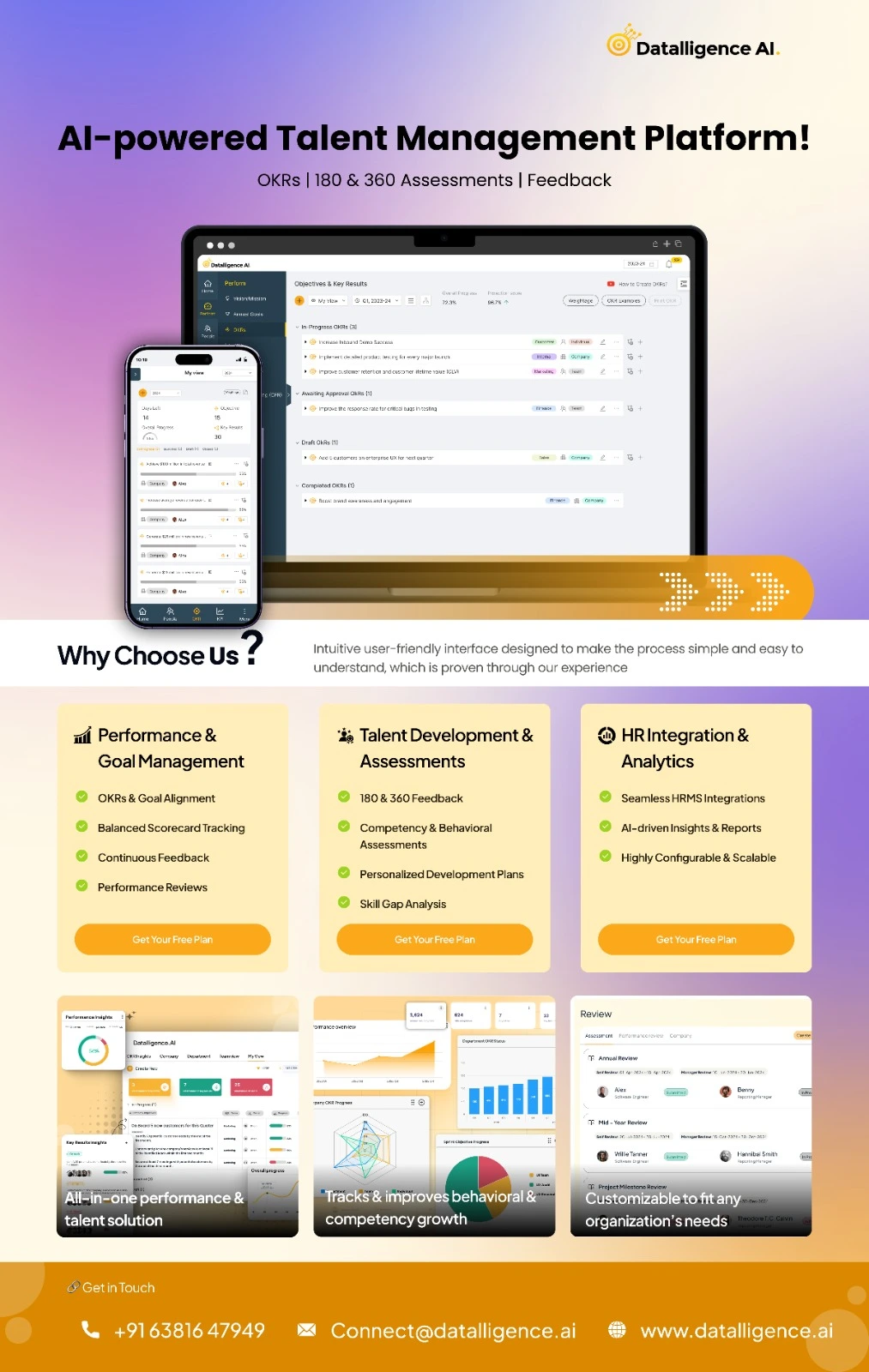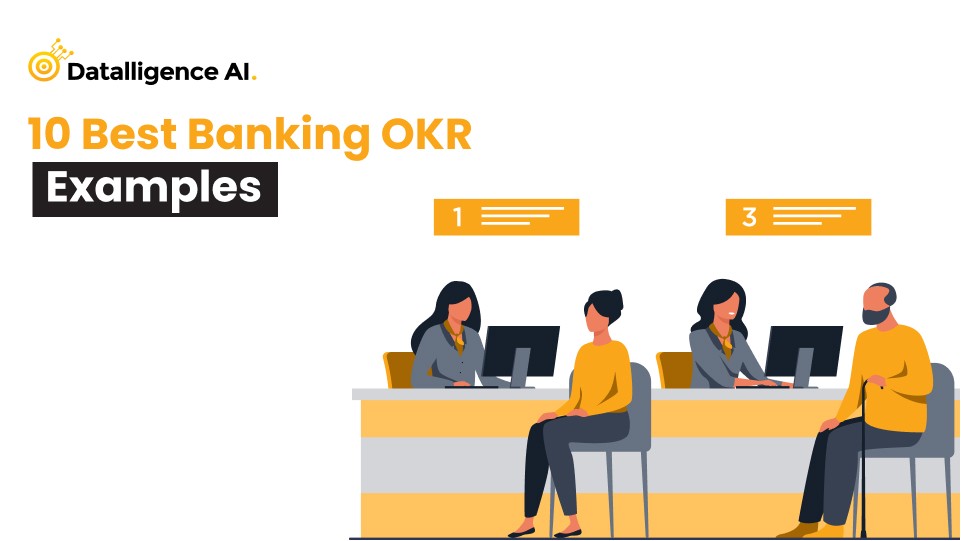OKR Implementation have consistently proven to be a transformative for driving focus, alignment, and accountability in organizations. According to research, companies that use structured goal-setting frameworks like OKRs are 30% more likely to outperform competitors. Their value is evident in the success stories of industry leaders like Intel, Google, LinkedIn, Uber, and Facebook, where OKRs continue to be integral to business operations.
These global giants have demonstrated how OKRs can create clarity, foster ownership, and build a culture of accountability at every level of the organization. By promoting transparency and alignment, OKRs ensure that everyone works toward shared objectives. This level of focus and engagement not only boosts productivity but also contributes directly to organizational profitability and agility, two critical factors in today’s competitive landscape.
However,there are challenges in implementing OKRs. While their benefits are undeniable, the process requires a thoughtful approach, extra effort, and an understanding of common pitfalls.
Why OKRs Make a Difference
OKRs bridge this gap by offering a unified approach to goal-setting and performance tracking. They enable leaders to shift from isolated metrics to a holistic view of organizational performance, ensuring transparency and alignment across teams.
Best OKR Software, such as Datalligence, provide an intuitive platform for consolidating business priorities, team objectives, and individual goals in a single system. This alignment allows leaders to track performance in real-time, evaluate progress against strategic objectives, and foster accountability at all levels.
By breaking down silos and creating transparency, OKRs empower organizations to focus on what truly matters—driving impactful results while enabling teams to own their contributions to success.
The Path Forward
While challenges like integrating systems and ensuring seamless implementation exist, the benefits of OKRs far outweigh the effort. Organizations that adopt OKRs as a framework not only increase focus and accountability but also build a culture of engagement and collaboration.
Let us now explore the other common challenges organizations face during OKR implementation and how these can be addressed effectively by understanding OKR best practices
Key Challenges in Implementing OKRs
“We’re Already Tracking Data in Another System.”
One of the most common challenges leaders voice during OKR implementation discussions is the reliance on existing data systems. While modern tools efficiently capture and manage data, the problem lies in data silos.
For example, organizational performance data often resides in disconnected systems—departments or teams may track their own KPIs, but these are rarely integrated into a cohesive, organization-wide view. This fragmentation makes it difficult to align team goals with broader business objectives, leading to gaps in visibility and a lack of clarity on how efforts contribute to overall progress.
We Already Have Metrics We Track
Relying too heavily on existing metrics can limit an organization’s potential. Metrics are essential, but OKRs push teams to think beyond fixed measures and adapt when necessary.
Why this mindset is limiting:
Metrics often reflect the past. OKRs, however, focus on the future, encouraging teams to take bold steps and challenge the status quo. Sticking rigidly to a single metric—even when it’s underperforming—can hinder progress.
We Follow Measure What Matters, and This Is Not How They Do It
John Doerr’s Measure What Matters is an excellent starting point for understanding OKRs, but it’s not a “one-size-fits-all” guide. Every organization has unique goals, cultures, and processes that require a tailored approach.
How to adapt OKRs to your business:
Treat OKRs as an open-source framework rather than a rigid rulebook. Customize your OKRs to align with your organizational priorities and ensure they resonate with your teams.
How Datalligence Supports This:
Datalligence OKR coaches work closely with organizations to understand their culture, identify critical goals, and design OKRs that fit seamlessly into their operations.
Tracking and Checking In on Data Is Too Much Work
One common concern is the perceived effort involved in tracking progress and conducting regular check-ins. However, frequent check-ins are essential for identifying trends, gaps, and bottlenecks early on.
Why tracking matters:
- Real-time tracking enables teams to course-correct quickly rather than waiting for end-of-quarter reviews.
- Regular updates provide clarity on progress and allow for early intervention on non-performing objectives.
How to simplify check-ins:
Datalligence integrates with existing tools and automates check-ins, minimizing manual effort. This ensures that teams can focus on achieving objectives rather than spending time on administrative tasks.
Aspirational Goals Without Understanding Capabilities
Aspirational OKRs drive innovation but can also lead to frustration if not managed well. Unlike Roofshot goals, aspirational OKRs often lack clear plans and resources upfront.
How to manage aspirational OKRs:
- Set realistic expectations: Scoring 70% on aspirational OKRs is considered successful.
- Analyze key results: Regularly evaluate whether the metrics chosen are realistic and adjust them as needed.
- Avoid blame: Focus on learning from non-performing OKRs rather than assigning blame.
- Stay motivated: Use setbacks as opportunities to refine strategies and improve.
Setting Too Many OKRs.”
When it comes to OKRs, less is more. Overloading teams with too many objectives dilutes focus and creates confusion.
Best practices:
- Limit OKRs to 3–5 objectives with no more than 5 key results per objective.
- Prioritize high-impact goals that align with organizational priorities.
By narrowing the focus, teams can dedicate their energy to delivering meaningful outcomes rather than spreading themselves too thin
Overcoming OKR Implementation Challenges
Align OKRs with KPIs to Drive Meaningful Results
- Challenge: Organizations may believe that tracking KPIs is sufficient and see no need for OKRs.
- Solution: Educate teams about the distinction and interdependence between KPIs and OKRs. While KPIs monitor ongoing performance (like revenue or churn), OKRs define audacious goals that push for improvement.
- Actionable Steps:
- Conduct a workshop to explain how OKRs complement KPIs.
- Use KPI trends to identify areas for growth and create OKRs focused on improving those metrics.
- Ensure your OKR software integrates both KPIs and OKRs to provide a holistic view of performance.
OKR Example: If your KPI for “Customer Satisfaction Score” drops, create an OKR with an objective like “Enhance customer satisfaction through faster issue resolution” and measurable key results like “Reduce average response time from 24 to 12 hours.”
Regularly Reassess Metrics for Relevance and Impact
- Challenge: Teams get too attached to certain metrics, even if they’re outdated or no longer relevant.
- Solution: Build a culture of flexibility around metrics and empower teams to modify or replace metrics that fail to drive progress. OKRs should reflect current challenges and opportunities.
- Actionable Steps:
- Introduce quarterly OKR reviews where teams evaluate their key results and metrics.
- Encourage data-driven discussions to identify non-performing metrics.
- Foster psychological safety so teams feel comfortable proposing changes to goals or metrics.
Example: If a key result like “Increase website traffic by 20%” isn’t aligned with business outcomes, replace it with a more actionable metric like “Increase conversion rate from 2% to 5%.”
Customize OKRs to Fit Your Organizational Culture
- Challenge: Some organizations rigidly follow frameworks like Measure What Matters, assuming it applies universally.
- Solution: Tailor the OKR framework to suit your company’s unique needs, culture, and processes. Every organization has its own rhythm, and OKRs should be flexible enough to adapt.
- Actionable Steps:
- Begin with pilot teams to test and refine the OKR process.
- Leverage OKR coaches to design a framework aligned with your company’s vision and culture.
- Solicit regular feedback from teams and adjust the OKR methodology as needed.
Example: If your company operates with cross-functional teams, focus on collaborative OKRs instead of individual ones to drive alignment and shared accountability.
Automate and Simplify Check-Ins to Reduce Workload
- Challenge: Tracking progress and conducting check-ins are seen as time-consuming tasks.
- Solution: Use OKR tools that integrate with existing systems and automate progress tracking, reducing the manual effort involved. This streamlines the process and ensures real-time visibility into progress.
- Actionable Steps:
- Implement OKR software like Datalligence to automate check-ins and integrate with tools your teams already use (e.g., Slack, Jira, or Excel).
- Schedule bi-weekly check-ins with teams to review progress and address bottlenecks.
- Use dashboards to provide a quick overview of objectives and key results, eliminating the need for complex reports.
Example: Automating updates for metrics like “Increase NPS from 50 to 70” through customer feedback tools saves teams from manually entering data.
Focus on Prioritization and Start Small
- Challenge: Setting too many OKRs dilutes focus and overwhelms teams.
- Solution: Emphasize quality over quantity by limiting the number of objectives and key results. A smaller, focused set of OKRs allows teams to channel their energy into achieving impactful goals.
- Actionable Steps:
- Limit each team to 3–5 objectives and a maximum of 3–5 key results per objective.
- Use a prioritization framework, like the Eisenhower Matrix, to identify high-impact goals.
- Regularly communicate the importance of focus to leadership and teams to ensure buy-in.
Example: Instead of creating 10 objectives for a quarter, narrow it down to the top 3 that align most closely with the company’s strategic priorities, such as “Launch a new product feature by Q2.”
Conclusion
Why OKRs Are Worth the Effort
OKRs, when implemented effectively, can transform the way organizations operate by fostering alignment, focus, and accountability. However, the journey requires careful planning and expert guidance to overcome initial challenges.
Having an experienced OKR coach can make a significant difference. OKR coaches help organizations:
- Customize the framework to fit their culture.
- Define measurable and achievable objectives.
- Train teams on best practices for goal-setting and tracking.
If you’re ready to drive alignment and performance through OKRs, talk to our OKR coaches today and begin your journey toward achieving ambitious goals with clarity and confidence.











